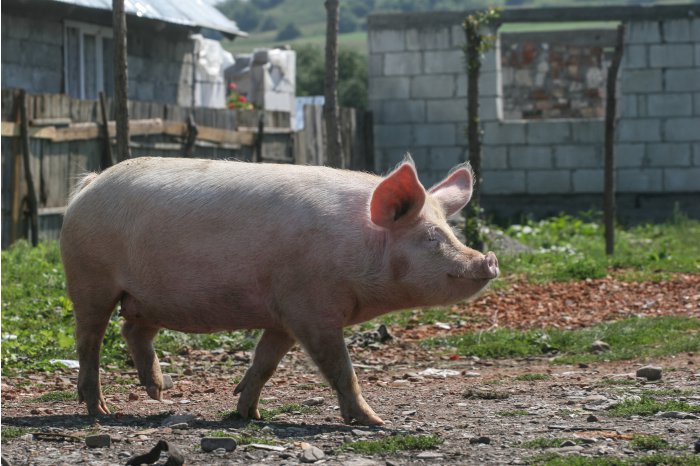African swine fever virus hits 14 districts of Moldova since 2016
16:08 | 07.11.2018 Category: Economic
Chisinau, 7 November /MOLDPRES/ - Fourteen districts of Moldova have been hit by the African swine fever virus (ASFV) during 2016-2018. Presently, six ASFV hotbeds are developing in domestic pigs and 13 hotbeds in wild boars, where the monitoring continues, according to sources from the National Food Safety Agency (ANSA).
Thus, starting from 2016, when the subject of African swine fever virus became topical in Moldova, the virus was identified in the districts of Donduseni, Soroca, Edinet, Stefan Voda, Orhei, Cimislia, Cahul, Ceadar-Lunga, Taraclia, Vulcanesti, Rezina, Hancesti, Anenii Noi and Causeni. In early November, three hotbeds are further developing in the Cahul district and three hotbeds in the Stefan Voda district. As many as 578 domestic pigs have been slaughtered because of ASFV in Moldova since early 2018.
Also, decision-makers continue the monitoring of swine fever in wild boars in 13 forestry farms from the districts of Orhei, Cimislia, Cahul, Rezina and Stefan Voda. ANSA specialists inform that the diseases hit 16 wild boars. “Ten corpses of wild boars have been also discovered; three of them were negative in the ASFV and another seven, being in advanced state of putrefaction, were impossible to be tested,” ANSA sources said.
„When the epidemiological inquiry was made, decision-makers established that the African swine fever virus had been brought to Moldova through pork, animal origin products and sub-products coming from animals receptive the ASFV (domestic pigs and wild boars), fraudulently imported from countries hit by the African swine fever virus,” specialists of the ANSA department for sanitary and veterinary supervision said.
Contacted by MOLDPRES, the chief forestry engineer of the Moldsilva Forestry Agency, Nicolae Munteanu, informed that specialists of Moldovan forestry entities, especially those concerned by ANSA, kept the situation under control and worked in special regime of epidemiological record.
Moldsilva decision-makers reiterated that, starting from 29 September, the hunting of wild boars had been allowed. This year, the upper limit of hunting wild boars is 1,138 animals. This number, higher against other years, is established as a result of the need of actions to prevent the spread of the African swine fever virus through wild boars.
According to ANSA data, in September-October, new cases of ASFV were identified in Romania, Ukraine, Hungary, Latvia, Poland, Russia, China and other countries. The situation is monitored by the World Organization for Animal Health, which undertakes needed measures required by international norms.
In Moldova, ANSA has worked out a comprehensive programme of measures aimed at counteracting the disease. According to an order issued by the Agency, the carriage of pigs and products and sub-products coming from pigs from countries hit by ASFV are envisaged to be temporarily limited and the sale of pigs in agricultural markets and animal fairs from Moldova is seen to be banned.
The African swine fever virus is a dangerous disease, without treatment or vaccine at present, which hits the domestic and wild species of pigs. ASFV is transmitted by direct contact between animals or indirectly, by feeding animals with slops containing meat or secondary products coming from infected animals, insects which fed themselves from infected animals or even by contaminated tools, clothes, fodder. ASFV survives during 6-10 days in fecal materials of infected animals, up to 3-6 months in pork products which were not treated thermally and in frozen pork during more years. The death rate of the infected animals is 100 per cent.
(Reporter L. Grubii, editor A. Raileanu)

